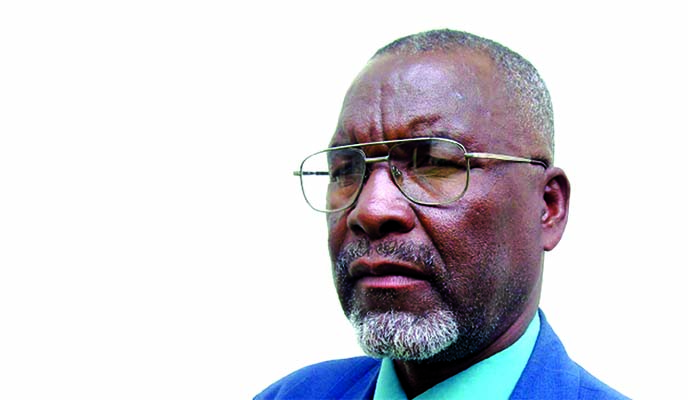
THE OPPOSITION MDC-T has blamed the poor academic performance of students in Matabeleland and Midlands on marginalisation, poverty and rampant economic decline due to company closures and relocations, leaving most parents out of formal employment.
BY SILAS NKALA
Reacting to Zimbabwe School Examinations Council (Zimsec)’ schools performance report released last week, MDC-T Bulawayo provincial deputy spokesperson, Felix Magalela Sibanda said students in southern parts of Zimbabwe performed poorly not because they were dull, but due to multiple economic factors affecting the provinces.
Zimsec analysis for the 2015 A Level results show that southern provinces anchored the performance table.
It showed that at the tailend was Matabeleland North with 83,6% pass rate for girls and 76,5% for boys. Bulawayo province was the ninth with 86,5% pass rate for girls and 80,7% for boys. Matabeleland South was eighth with 88,4% for girls and 83,1% pass rates for boys. Midlands was rated seventh with 87,7% girls passing against 83,1% boys.
Zimsec said this was in contrast to Harare, which recorded 96,8% pass rate for girls and 79,7% for boys, followed by Mashonaland East which came second with 94,2% for girls and 90,4% for boys and Masvingo was third with 93,1% for girls and 90,4% for boys.
Mashonaland Central was rated fourth with 92,7% pass rate for girls and 87,1% for boys. Manicaland was the fifth with 91% for girls and 87,6% for boys and Mashonaland West was placed sixth with 89,4% for girls and 83,4% for boys.
“The economy of each region has an impact of how children perform in their public examinations,” Sibanda said. “Who does not know that most Bulawayo firms have either closed or relocated to the capital city, Harare? Harare is booming economically, while Bulawayo, Gweru and other provinces in Matabeleland are economically dead. In such circumstances, how can students perform adequately as in the rich regions, where parents have plenty to give to their children or schools?”
- Chamisa under fire over US$120K donation
- Mavhunga puts DeMbare into Chibuku quarterfinals
- Pension funds bet on Cabora Bassa oilfields
- Councils defy govt fire tender directive
Keep Reading
He said historically, southern Zimbabwe was seriously affected educationally and lost greatly economically when the Fifth Brigade (Gukurahundi) was deployed in the region in the 1980s.
“Who does not know that the best teachers left the schools between 1980s and 2012, fearing political violence?” Sibanda asked. “Most schools in these provinces are shacks and some grades 1 to 3 are taught in foreign languages instead of their mother languages.”
He claimed Zanu PF spokesperson Simon Khaya Moyo was denied the post of Vice-President after he complained over uneven deployment of teachers in the region.
“The region has poor school infrastructure, one has to visit rural schools and would wonder whether they are pig sties or fowl runs. Visit Shurugwi in the farming areas and see for yourself the type of schools the poor African child attends. It’s an eyesore indeed,” Sibanda said.

The MDC-T spokesperson said most parents in Bulawayo lost their jobs and cannot manage to pay for extra lessons.
“We demand equity and fairness in the distribution of resources such as, laboratories, libraries, to mention a few, in all schools, be they rural or urban, Mashonaland, Matabeleland, Masvingo or Midlands. Some schools are staffed by unqualified teachers. We call for an independent commission to establish the disparities in the education sector,” he said.
Bulawayo provincial education director, Dan Moyo, said the trend showed that most city schools did well, although there were a number of issues working against the education sector.
Moyo blamed parents for failing to take advantage of the arrangement most schools in the city have with the National University of Science and Technology for the teaching of Mathematics and Science subjects.
National Association of Secondary School Heads vice-president, Arthur Maphosa blamed parents for not adequately supporting school heads in the education of their children, as they were reluctant to pay levies, taking advantage of a government directive which ordered schools not to send children back home over unpaid fees.










